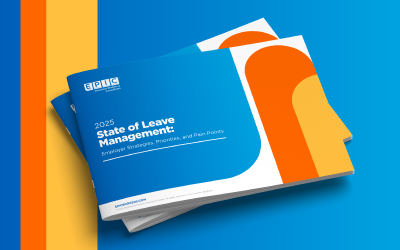Quick Facts
- Starting April 1, 2021 through September 30, 2021, certain COBRA beneficiaries will be given the opportunity to participate in COBRA continuation coverage at no cost.
- Employers will cover the cost of the subsidies and request a refund for the COBRA premiums not paid against the employer’s Medicare portion of the payroll taxes.
- The DOL has provided three new COBRA model notices and a summary of the subsidy rules that must be provided to qualified beneficiaries.
Introduction
To help clients better navigate the complexities of the recently announced Consolidated Omnibus Budget Reconciliation Act (COBRA) subsidies under the American Rescue Plan Act (ARPA), EPIC partner, Benefit Comply, has put together the following overview and set of frequently asked questions (FAQs). We hope this document aids with the basics of the requirements and some meaningful direction while we await further guidance from the agencies.
General Subsidy Overview
Assistance Eligible Individuals (AEIs)
The following individuals must be given the opportunity to participate in COBRA continuation coverage at no cost for April through September 2021, so long as they are not eligible for other group health plan coverage or Medicare:
- Individuals who are offered federal COBRA or state continuation due to an involuntary termination of employment or reduction in hours that occurs April through September 2021.
- Individuals who were offered federal COBRA or state continuation due to an involuntary termination of employment or reduction in hours and who are currently COBRA participants (elected continuation coverage and are making monthly premium payments); and
- Individuals who were offered federal COBRA or state continuation due to an involuntary termination of employment or reduction in hours, chose not to elect COBRA, or elected and then dropped it, but are still within their maximum COBRA coverage period.
Subsidy Time Frame
The COBRA subsidy is available April through September 2021, but it will end sooner if AEIs become eligible for other group health plan coverage or Medicare, or if AEIs exhaust their maximum coverage period under federal COBRA or state continuation.
Applicable Coverage
For employees and their family members enrolled when a reduction in hours or involuntary termination of employment caused a loss of coverage, the COBRA subsidy must be offered for all group health plans (e.g., medical, dental, vision, HRA (health reimbursement arrangement), EAP (employee assistance program), onsite clinic), but not health FSAs (flexible spending accounts).
Employer Responsibility & Payroll Tax Credits
For group health plans subject to federal COBRA, the employer is responsible for notifying AEIs, providing the coverage at no cost, and requesting a refund for the COBRA premiums not paid against the employer’s Medicare portion of the payroll taxes. For group health plans subject to state continuation, the carrier should take responsibility for providing the coverage and requesting a payroll tax credit.
Notice Requirements
The Department of Labor (DOL) has provided three new model notices, along with a COBRA subsidy summary and certification form. There is a revised election notice (for new qualified beneficiaries) and an extended election notice (for existing qualified beneficiaries), both of which should be accompanied by the summary and certification form. In addition, there is a notice to inform AEIs who elect the COBRA subsidy prior to the subsidy ending.
Frequently Asked Questions (FAQs)
1. What is considered an involuntary termination of employment?
No official guidance is available yet, but based on the IRS 2009 ARRA guidance, involuntary termination of employment should be interpreted broadly. An involuntary termination means a severance from employment due to the independent exercise of the unilateral authority of the employer to terminate the employment, other than due to the employee’s implicit or explicit request, where the employee was willing and able to continue performing services.
All of the following were considered an involuntary termination of employment:
- Layoffs and reductions in force
- Failure to renew a contract
- Termination for cause
- Employer’s action to end employment when an employee cannot work due to illness or disability
- Employee resignation as the result of an employer-initiated change in work location
The involuntary termination of employment does not need to be related to COVID. If the involuntary termination of employment was for gross misconduct, the individual was never eligible for COBRA and therefore not eligible for the COBRA subsidy either. However, it’s unclear exactly what will meet the standard of gross misconduct, so employers should only assume COBRA is not required after discussing specific facts and circumstances with counsel.
2. How does the employer recover lost COBRA premium payments?
No official guidance is available yet, but it appears that employers may take a credit against the Medicare portion of payroll taxes (e.g., using Form 941). We expect the Internal Revenue Service IRS will provide more specific guidance soon, including for situations in which the employer’s Medicare payroll tax liability is less than the missed COBRA premiums. We’re also assuming the IRS will set forth expectations for records/documentation that will be needed to prove eligibility for payroll tax credits. NOTE: The payroll tax credit is available to government entities as well.
3. What counts as eligibility for other group health plan coverage?
Individuals who are eligible for an employer-sponsored group medical plan, through their own employment or through a spouse or other family member, are not eligible for the COBRA subsidy. Eligibility for excepted benefits (e.g., standalone dental or vision), a qualified small employer health reimbursement arrangement (QSEHRA) or health flexible spending account (FSA), Medicaid, or individual health coverage does not affect eligibility for the COBRA subsidy.
4. How far are we required to “look back” to determine who must receive a notice?
For group health plans subject to federal COBRA, employers will generally have to look back 18 months (i.e., qualifying events that triggered a loss of coverage in October 2019 or later) because an employee’s reduction in hours or involuntary termination of coverage will typically trigger an 18-month maximum coverage period for employees and their family members who were enrolled when the qualifying event occurred. However, it’s possible that federal COBRA extensions may need to be taken into account. For example, spouses and dependents who have a second qualifying event after electing COBRA can extend their maximum coverage period to 36 months. In addition, a disability determination can extend the maximum coverage period to 29 months.
For group health plans subject to state continuation, the maximum coverage period varies greatly from state to state, in some cases lasting only a couple of months, and in other cases (e.g., California, New York), the maximum coverage period is 36 months.
5. Who needs to receive which notices?
There are three different groups of individuals who may require a notice:
- New Qualified Beneficiaries (now through September 2021): The normal COBRA election notice should be replaced with the “Model General Notice and COBRA Continuation Coverage Election Notice” along with the “Summary of COBRA Premium Assistance Provisions.”
- Existing Qualified Beneficiaries (triggered a continuation right prior to April 2021): The “Model Notice in Connection with Extended Election Period” along with the “Summary of COBRA Premium Assistance Provisions” should be sent no later than May 31, 2021.
- AEIs who elect the COBRA subsidy: The “Model Notice of Expiration of Premium Assistance” must be sent 15-45 days prior to the subsidy ending due to the end of the maximum coverage period or reaching September 30, 2021.
6. Do we have to collect the certification that is part of the Summary of COBRA Premium Assistance Provisions?
It’s not clearly required, but the recommendation is to collect the certification for the following reasons:
- To ensure the COBRA subsidy is only provided to AEIs who are not eligible for other group health plan coverage or Medicare;
- To ensure the carrier (or stop-loss carrier) will provide coverage; and
- To provide proof of the employer’s right to collect payroll tax credits.
7. Who is responsible for sending the notices, providing the coverage, and collecting applicable payroll tax credits?
- For plans subject to federal COBRA, the employer is responsible for all of these things.
- For plans subject to state continuation, it appears the carrier will take responsibility for all of these things.
- For plans subject to both federal COBRA and state continuation (e.g., a larger employer offering a fully insured plan), we’re waiting on further guidance from the agencies.
See our related Compliance Insight for info on the other health insurance provisions in the ARPA
EPIC Employee Benefits Compliance Services
For further information on this or any other topics, please contact your EPIC consulting team.
Learn About Our Employee Benefits Compliance Services
EPIC offers this material for general information only. EPIC does not intend this material to be, nor may any person receiving this information construe or rely on this material as, tax or legal advice. The matters addressed in this document and any related discussions or correspondence should be reviewed and discussed with legal counsel prior to acting or relying on these materials.
DOWNLOADABLE RESOURCES
Sign up for our Compliance Matters Newsletter
You’ll receive our monthly newsletter, as well as special compliance alerts and invitations to our compliance webinars
Related Content
Products
Employee Benefits Consulting
Our dedicated benefits team is focused on delivering better outcomes – to both your benefits program and ...
Products
Compliance
We provide comprehensive consulting services and in-depth education regarding the ever-changing employee ...
Products
Wellbeing & Health Management
Our consultants help you create a strategy around health management that will impact your culture and your ...


